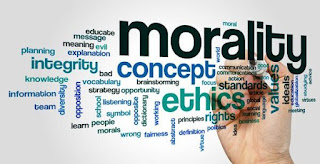Inesi, M. E., & Rios, K. (2023).
Journal of Experimental Social Psychology,
106, 104441.
Abstract
Power hierarchies are ubiquitous, emerging formally and informally, in both personal and professional contexts. When prosocial acts are offered within power hierarchies, there is a widespread belief that people who choose lower-power beneficiaries are altruistically motivated, and that those who choose higher-power beneficiaries hold a self-interested motive to ingratiate. In contrast, the current research empirically demonstrates that people can also choose lower-power beneficiaries for self-interested reasons – namely, to bolster their own moral reputation in the group. Across three pre-registered studies, involving different contexts and types of prosocial behavior, and including real financial incentives, we demonstrate that people are more likely to choose lower-power beneficiaries when reputation concerns are more salient. We also provide evidence of the mechanism underlying this pattern: people believe that choosing a lower-power beneficiary more effectively signals their own moral character.
Highlights
• How do prosocial actors choose their beneficiaries in hierarchies?
• People increasingly choose lower-power beneficiaries when concerned with reputation
• This pattern is driven by a desire to signal high moral character to others
• This implies a short-term re-distribution of resources to lower-power individuals
Some thoughts:
This research challenges the common assumption that prosocial behavior towards lower-status individuals always stems from altruism, while helping those with higher power reflects self-interest. It explores how actors navigate power hierarchies to build their moral reputation.
Key findings:
Reputation matters: People are more likely to choose lower-power beneficiaries when their moral reputation is salient (e.g., being observed by others).
Strategic signaling: Choosing lower-power recipients is seen as a stronger signal of good character, even if the motivation is self-serving.
Not just altruism: Prosocial behavior can be used strategically to gain social approval and build a positive reputation, regardless of the beneficiary's status.



















